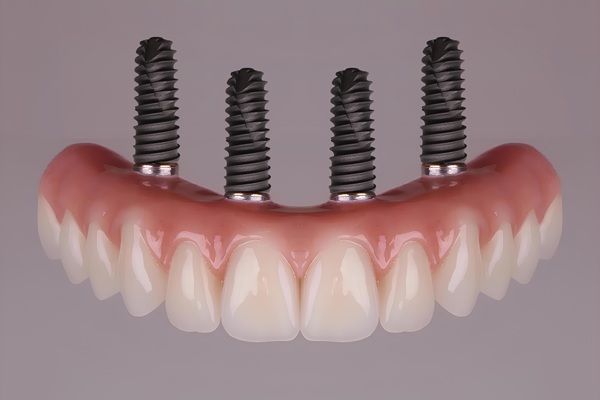 Dental crowns may be the final touch after a root canal treatment. This therapy is your dentist’s effort to keep your teeth intact. It aims to remove the source of pain and infection. In some patients, extra tooth protection is necessary after a root canal. Here are the details about when dental crowns are necessary after root canal therapy.
Dental crowns may be the final touch after a root canal treatment. This therapy is your dentist’s effort to keep your teeth intact. It aims to remove the source of pain and infection. In some patients, extra tooth protection is necessary after a root canal. Here are the details about when dental crowns are necessary after root canal therapy.
What dental crowns are
Crowns or caps can help patients who need dental bridges or dental implants. These restorations can also rejuvenate teeth with severe decay. Placing dental crowns can protect and strengthen weakened teeth. It allows the teeth to perform normal dental functions. Weakened teeth include damaged or decayed teeth with large fillings. Root canal-treated teeth may also need crowns.
Root canal treatment and dental crowns
A dentist may recommend these restorations after a root canal therapy. The strength of the remaining teeth and the location of these treated teeth will determine if the patient needs dental crowns. Molars and premolars will need the protection of crowns. These specific teeth will need more support because of their constant chewing.
Root canal treatment will remove the infected pulp. This will weaken the natural dental structures. After filling the pulp cavities, the dentist will recommend placing dental crowns. Doing so will protect the weakened teeth. The caps will protect the teeth from future decay and trauma.
Follow-up visits are necessary after completing the placement of dental crowns. This will help the dentist catch any possible issues after the root canal treatment. Keep the treated area clean by brushing even around the dental crowns. These restorations are important in holding the tooth together. They also help the treated teeth heal faster.
The available types of dental crowns
A dentist can offer different types of crowns to the patient after a root canal treatment. The choice will depend on the patient’s budget and preference. The dentist will also consider the patient’s dental needs. Here are the available types of dental crowns to consider:
- PFM or porcelain-fused-to-metal crowns have a large following. These caps look and feel like natural teeth, as well as being durable. Proper care and maintenance can make these restorations last for many years.
- Gold dental crowns are made up of different metals, including chromium and copper. They are the most durable of all the types of dental crowns. Dentists often use them for restoring the back teeth.
- Lithium disilicate crowns are made of lithium disilicate. They are thin and light but strong and durable. Dentists use them for back and front teeth.
- All-porcelain crowns are the most popular dental crowns. These restorations blend well with the neighboring natural teeth. Dentists use them for the front teeth.
- Zirconia crowns are strong and aesthetically pleasing. These restorations are metal-free, so these caps will not trigger any metal allergies.
What to consider when choosing dental crowns
These restorations can last for years. That is why finding the right dentist is important. Budget matters most, but the most inexpensive dentist is not always the right choice. The materials for their dental crowns may be low-quality. This will mean more time, discomfort, and money later on. Analyzing the factors is important before making any decisions.
Dental crowns can provide more protection and strength to your root canal-treated teeth
Root canal treatment removes the infected pulp. Even if your dentist fills the pulp cavity with gutta-percha, your teeth remain weak. Dental crowns strengthen the treated teeth. These restorations keep them intact and strengthen them for proper dental functions. Working with your dentist can help your dental crowns last for a long time.
Request an appointment or call South Florida Dental Arts at 305-230-4041 for an appointment in our Miami office.
Recent Posts
Dental crowns are restorations that can address a range of dental issues, from severely damaged teeth to protecting a tooth after a root canal. They help preserve oral health and enhance a smile's appearance. In addition to being versatile, they are available in different materials, which can be helpful for individuals who want options.Dental crowns…
Dental crowns are caps that cover and replace natural tooth structures to restore their shape, function, and appearance. They are a popular restorative treatment that can address various dental issues. By investing in dental crowns, you are not only restoring the look of your smile, but you are also safeguarding the future of your oral…
Your dentist can help determine if you need dental crowns. There are many reasons for getting these restorations. The main goal is always to restore the tooth and enhance its functions. Here are the signs you may need dental crowns soon.Losing at least one tooth can cause more dental problems. It can lead to dental…


